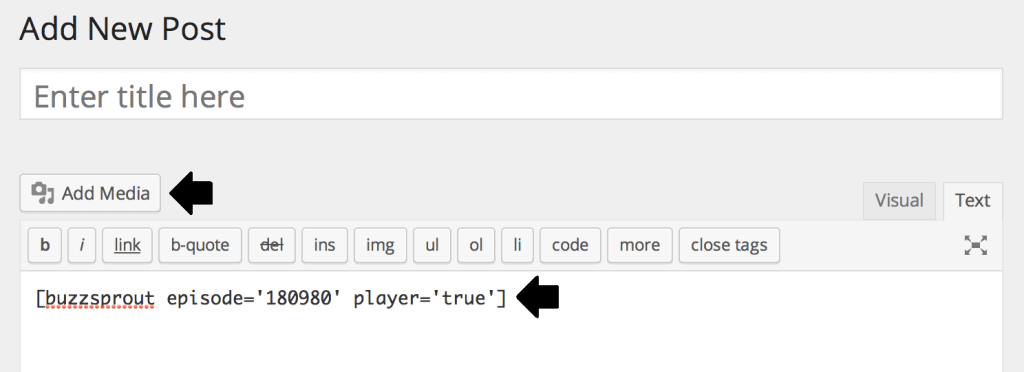How To Podcast Using WordPress
Сообщение 2021-09-16 16:10:28
0
0
A podcast is the next level from blogging. While blogging is conducted by an army of pajama-clad individuals, podcasting is carried out by a large portion of these individuals, but more often, they are with a digital recording device or an audio player. The short segments are recorded and then distributed using RSS 2.0 as well as Atom to their websites which is usually a blog. The listeners and viewers are able to download podcasts using podcast clients. A good podcast client (for instance, Juice, CastPodder, or iTunes) will allow you to subscribe to the RSS/Atom feed of your favorite podcasters and immediately download the content to a computer or to a portable audio player as new content becomes available.
Most podcasters create their content as MP3 or MP4 audio or video files. They then upload the files, connecting to the file within an article on their blog. The users can click the link to download their content if they're not automatically subscribed to the RSS/Atom feed. The difficulty hasn't been how to upload the content onto the website however the issue is making the content work through the feed systems. WordPress generally, will automatically include new data from podcasts into your RSS/Atom feed system. This makes it simple for you to distribute content and for your users to sign up to the content.
For the majority of users, WordPress 1.5 and above can podcast effortlessly and automatically. When you hyperlink to the audio file in an WordPress blog post by using the complete URL, it incorporates it into the feed RSS/Atom and makes it a podcast. Be sure to use a full address:
Wrong: My podcast
Right: My podcast
The last step is to include a link to your RSS/Atom feeds on your page. By default, feeds appear on the bottom on your WordPress page. The feeds link should look like this when you're using the RSS feed:

In the earlier versions of WordPress, automated links work for posts only, not for static pages. Because WordPress must keep precise information about file sizes in case you modify an associated file, ensure that you republish the post with the link. If you've linked to files which has any reason to not be fully accessible from your blog or podcast, your podcast won't work properly when it's finished because WordPress won't have the correct data on the size of the file.
For Apache servers, as well as others that utilize to use the .htaccess file, you'll need the addition of a directive the config file , or .htaccess file in order for it to recognise podcast media files (m4a and M4b) properly. You'll need to add this line in the file you're using:
Most podcasters create their content as MP3 or MP4 audio or video files. They then upload the files, connecting to the file within an article on their blog. The users can click the link to download their content if they're not automatically subscribed to the RSS/Atom feed. The difficulty hasn't been how to upload the content onto the website however the issue is making the content work through the feed systems. WordPress generally, will automatically include new data from podcasts into your RSS/Atom feed system. This makes it simple for you to distribute content and for your users to sign up to the content.
For the majority of users, WordPress 1.5 and above can podcast effortlessly and automatically. When you hyperlink to the audio file in an WordPress blog post by using the complete URL, it incorporates it into the feed RSS/Atom and makes it a podcast. Be sure to use a full address:
Wrong: My podcast
Right: My podcast
The last step is to include a link to your RSS/Atom feeds on your page. By default, feeds appear on the bottom on your WordPress page. The feeds link should look like this when you're using the RSS feed:

In the earlier versions of WordPress, automated links work for posts only, not for static pages. Because WordPress must keep precise information about file sizes in case you modify an associated file, ensure that you republish the post with the link. If you've linked to files which has any reason to not be fully accessible from your blog or podcast, your podcast won't work properly when it's finished because WordPress won't have the correct data on the size of the file.
For Apache servers, as well as others that utilize to use the .htaccess file, you'll need the addition of a directive the config file , or .htaccess file in order for it to recognise podcast media files (m4a and M4b) properly. You'll need to add this line in the file you're using:
Поиск
Категории
- Art
- Causes
- Crafts
- Dance
- Drinks
- Film
- Fitness
- Food
- Игры
- Gardening
- Health
- Главная
- Literature
- Music
- Networking
- Другое
- Party
- Religion
- Shopping
- Sports
- Theater
- Wellness
Больше
Intrusion Detection System Market Global Size Overview, COVID19 Impact, Growth Drivers, Industry Share and Forecast to 2027
Market Scenario
As per Market Research Future (MRFR) analysis, the intrusion detection...
Mainkan Game Poker Online Indonesia Terlengkap Tahun Ini
Halo para aktor permainan poker online indonesia kembali lagi bersama-sama admin kali ini aku...
Concurso Sap Sp
Enquanto para os agentes comunitários a bem-estar haverá um curso...
Xcashshop Tempat Top Up Game Yang Aman Dan Terpercaya. Untuk Mempermudah Pembayaran Kami Juga Menyediakan Methode Pembayaran Lengkap.
mobile legends . Untuk Mempermudah Pembayaran Kami Juga Menyediakan Methode Pembayaran Lengkap.
Believing These 7 Myths About Online Psychiatrist Keeps You From Growing
Many times I had felt my partner and i wanted to die. But one day Thought about felt sick and i...

